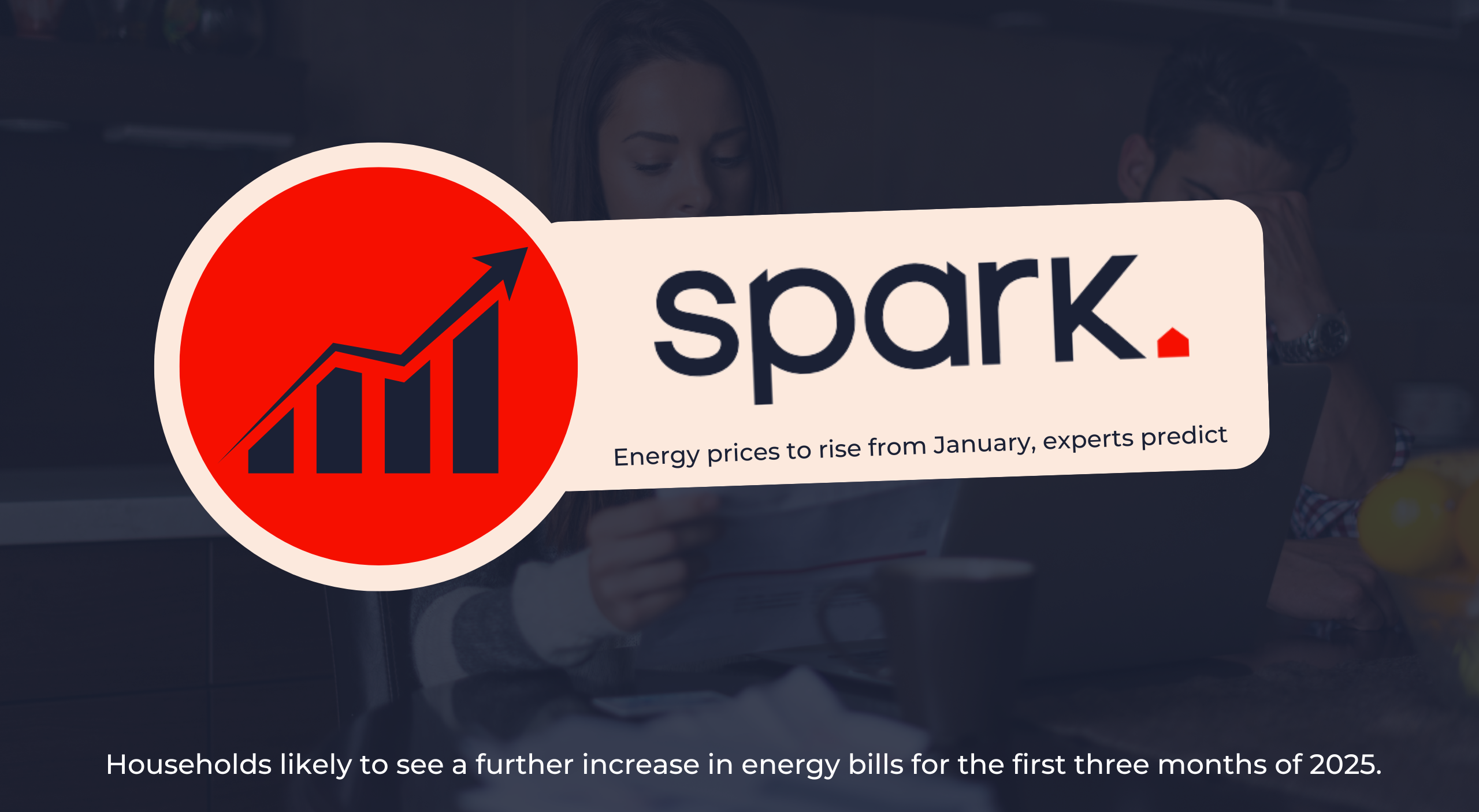
Industry experts Cornwall Insight predict that households will see another spike in energy costs in the first three months of 2025 meaning an imminent energy price rise.
According to the company, a typical dual-fuel household on a normal variable tariff will pay £1,736 a year, which is 1% more than the price cap that Ofgem imposed in October.
The price cap, which previously increased by £149 to £1,717 in the summer, sets a limit on the amount energy providers can charge for each unit of gas and electricity as well as standing costs.
Price Cap A False Sense Of Security?
According to Cornwall Insight, the anticipated rise is due to the wholesale energy market’s volatility, which is influenced by several smaller factors, including supply issues, weather-related disruptions, geopolitical tensions, and maintenance of Norwegian gas infrastructure.
At Spark, we know that this news isn’t ideal for the UK population and having seen recent cuts in July it seems the trend of paying more for your energy over the long term is becoming a reality.
Pre-Crisis Energy Prices Almost A Dream
According to Craig Lowry, the principal consultant at Cornwall Insight, there “doesn’t seem to be any sign of a return to pre-energy crisis levels.”. With this new energy price rise, pre-crisis prices seem almost unachievable, especially in today’s climate and political landscape.
Ofgem’s quarterly price limits are predicted by Cornwall Insight’s price cap predictor, which accounts for a number of variables that affect home energy costs.
With unit rates set at 24.83p per kWh for electricity and 6.33p per kWh for gas, the anticipated price cap for January includes a standing fee of £0.61 per day for electricity and £0.32 per day for gas.
Between October 2022 and June 2023, during the energy crisis brought on by Russia’s invasion of Ukraine, the price cap peaked at £2,380 per year. After that, it fell to £1,976 between July and September of 2023, and then to £1,834 for the year’s last quarter.
The average household bill this year increased to £1,928 for the first three quarters, dropped to £1,690 in the second quarter, and then increased once again.
Is Solar The Solution?
One way to tackle rising energy bills is, of course, to generate your own energy with renewable energy sources in the home… the leading being solar. If you would like to know how solar can help you, just fill out the form here and we’ll be in touch!
As energy prices go up, you see more savings on the energy you produce yourself especially if you store or sell back your energy to the grid via the Smart Export Guarantee (SEG). If you would like to find out more, just visit sparkhome.co.uk
